Blog
BLOG DISCLAIMER
![]() This blog provides general information and discussions about NVR and related subjects. The information and other content provided in this blog, or in any linked materials, are not intended and should not be construed as professional advice, nor is the information a substitute for professional expertise or treatment. If you or any other person has a concern, you should consult with a professional NVR advisor. Never disregard professional advice or delay in seeking it because of something that you have read on this blog or in any linked materials.
This blog provides general information and discussions about NVR and related subjects. The information and other content provided in this blog, or in any linked materials, are not intended and should not be construed as professional advice, nor is the information a substitute for professional expertise or treatment. If you or any other person has a concern, you should consult with a professional NVR advisor. Never disregard professional advice or delay in seeking it because of something that you have read on this blog or in any linked materials.
The opinions and views expressed on this blog are those of the blog post author and have no relation to those of any academic, health practice or other institution, including those of PartnershipProjects UK Ltd.

Accreditation Module… A Review
My experience of completing the Accreditation Module in NVR has been both enriching and inspiring.
As a clinical psychologist working in children’s social care, I was struck by the levels of violence and controlling behaviours within the context of child-parent relationships. I felt out of my depth and turned to NVR with healthy scepticism and hope. I have not since turned back – except when reflecting of course 😉
To me, it has always felt intuitive and necessary to take account of relational dynamics when working towards contextualised understandings of difficulty or distress. It is therefore perhaps not surprising that within both my individual practice and wider systems work, NVR has become my most valued position from which to influence and resist.
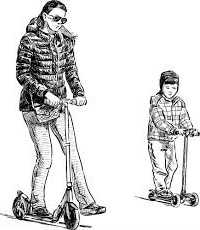
Scooting to School
This morning my son and I scooted to school together – him on his scooter, me on mine. As we reach the busy main road, we wait together to cross and then chat happily for the rest of the way until parting company at the school gates. It was a calm, safe journey where he was regulated and content. On my way home, I celebrated this as a win – inwardly smiling at his confidence and the connection we shared.
Casting my mind back a year ago, I recall a school run where at the same busy main road, he hadn’t responded to my instruction to wait and pushed out into the road on his scooter. I put my arm out to keep him safe. Eventually we crossed safely and made it to school. Reflecting back there was a distinct lack of safety and perhaps even a ‘disconnect’ in our relationship.
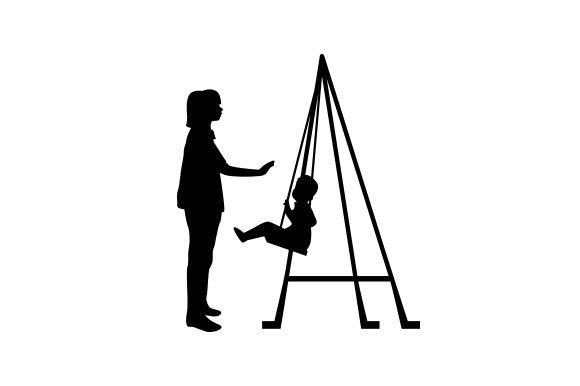
Love Is Not Enough?
I always knew being a parent would be about sacrifice and patience, about giving, and about providing for my child.
My love provides the setting and context for my child to learn, grow and flourish to develop in a loving, caring and nurturing home. I provide the space in my home and in my life. Physical and practical things like the bedroom, the clothes, the toys, tasty food, the early mornings, the broken nights, clearing the snot and the poo…and then creating memories, first events, days out, holidays and safe learning through exploring and boundary setting.
What if with all of this, the child still struggles to engage in the way I had expected, or engage at all, or even rejects it. What else can my love provide?

Finding Hope For 2022
Helping our parents to trust in us and the process of NVR when they are down trodden, exhausted and, at times, bitter towards professionals is a central question for practitioners, not just of NVR, but in many therapeutic endeavours. The question of where to start with families in crisis is very much on the agenda and this is a question I have discussed many times in training and supervision contexts and have considered in my own clinical practice with distressed parents. So often, newly qualified NVR practitioners worry about how to start with parents, perhaps feeling rather overwhelmed by the unfamiliarity of the NVR approach and unclear about the process, as well as confused by the multiple stresses and demands of the family and pressured by expectations of their agency.
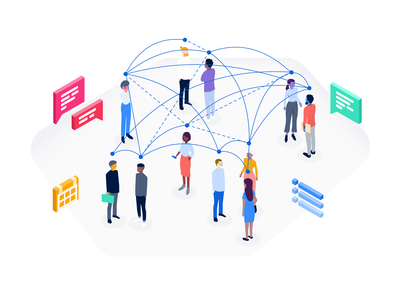
Joining up the dots: Using Non-violent Resistance (NVR) and Contextual Safeguarding (CS) to strengthen adult and community guardianship
My name is Tony Meehan. I am a practitioner of Non Violent Resistance (NVR) with PartnershipProjects UK. NVR was developed by Dr Haim Omer and introduced to the UK by Dr Peter Jakob.
My introduction to NVR and, separately, to Contextual Safeguarding (CS) came in 2016, the year before I retired, after almost nine years, as head of an inner-London Pupil Referral Unit (PRU). My experiences working with children excluded from mainstream school convinced me of the urgent need for alternative approaches to managing behaviour that are not rooted in traditional behaviourist models so common in practically every school in the country – including in many PRUs and alternative provision (AP) schools. On their trajectory to permanent exclusion, these pupils are often subject to a raft of exclusionary “behaviour management” approaches; even detentions – excluding young people from socialising with their friends in breaks and after school – or afternoons or days spent in isolation booths for example.

Fire and feathers – the use of metaphor in NVR
I began paying more attention to the use of metaphor in NVR after attending Dan Dulberger’s training in the use of NVR in families where young adults are struggling to emerge into adulthood and remain entrenched in their dependency on their parents. Dan used a number of metaphors in his training to explain the position that parents take when encouraging young people into autonomy. He explained the gradual process of de-accommodation by referring to eagles, who line a special place in the nest with feathers and softness for the eggs, but the part of the nest for the fledglings is much less comfortable – indeed Dan referred to eagles removing feathers from the nest in order to encourage the fledglings to fly. Eagles know that their babies have to leave the nest for their safety and the survival of the whole family. The concept of de-accommodation can be a tough one for families, especially those that may have adopted children and have spent years using therapeutic parenting.
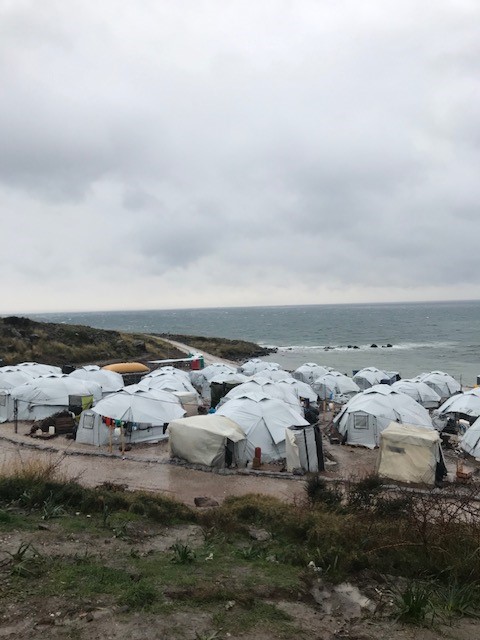
Diary: Lesvos/Kara Tepe: 3–22 January 2021
By: Dr. Michaela Fried
Already huge problems due to the pandemic while planning the journey. Are we going to be allowed to fly out? Is there going to be a flight during lockdown? Naturally we have to do a PCR test shortly before take-off. We met a week ago: Helga Longin volunteering for the NGO “Unser Bruck hilft” (Our Bruck helps); Sabine Sommerhuber, who has been “thinking about” the refugee situation in Austria and beyond its borders together with myself and others in the think tank “Die Unerhörten” (The Outrageous) since 2015; she works with Helga, and child psychiatrist Ulla Wurm, a colleague of mine at psychosocial services in Eisenstadt, Burgenland, who spontaneously decides: I’m coming with you! First, an antigen test in my company flat and then a nice gathering with snacks and a unanimous agreement: We will fly out as soon as possible. Sabine takes care of the flights, I will scrounge medication. We want to go because it has become a matter of the heart, and we have to because so many people have generously donated money for our project, their thoughts being “If I give the money to you, I know it will go where it is needed. I can’t do anything else from Austria…” In the meantime, Ulla had contacted Kai at Medical Volunteers International (MVI), a Hamburg-based NGO. This NGO recruits medical professionals who volunteer in regions for a limited period of time to provide medical care to people in crisis areas or emergencies. They welcomed us into their team without any complications.

Trouble at School
My 7-year-old son came home the other day and just before bed (his favourite time to initiate a deep and meaningful discussion) he said, “Mum, there is a rule at school and I would like your opinion on it. You may agree with it, you may not but I would like to know what you think?”
He went on to explain that the children in his class receive a punishment where they lose five minutes off their lunch break, if they don’t cross their arms or if they are talking when they line up. He explained that he and his best friend had this punishment issued to them that day and it had upset him. I was gobsmacked. I wasn’t aware I had placed him in a Dickensian school or military training academy. I thought it was a regular school for primary aged children where punitive consequences were widely understood to be unhelpful at best, harmful at worst.
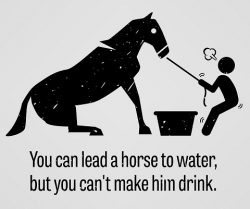
You can lead a horse to water… by Jill Lubienski and Peter Jakob
When not to use NVR with a family?
This is a question prompted by noticing the types of referrals received over the years and by questions raised by participants in training contexts. It also seems that this year, the year of Covid19, and driven by rising need and reduced capacity in the various support systems around families, pressures to find rapid relief, a ‘fix’ for a family in need, are increasing. We have also heard of courts requiring families to undertake an NVR intervention as part of a process of returning a child home from Care.
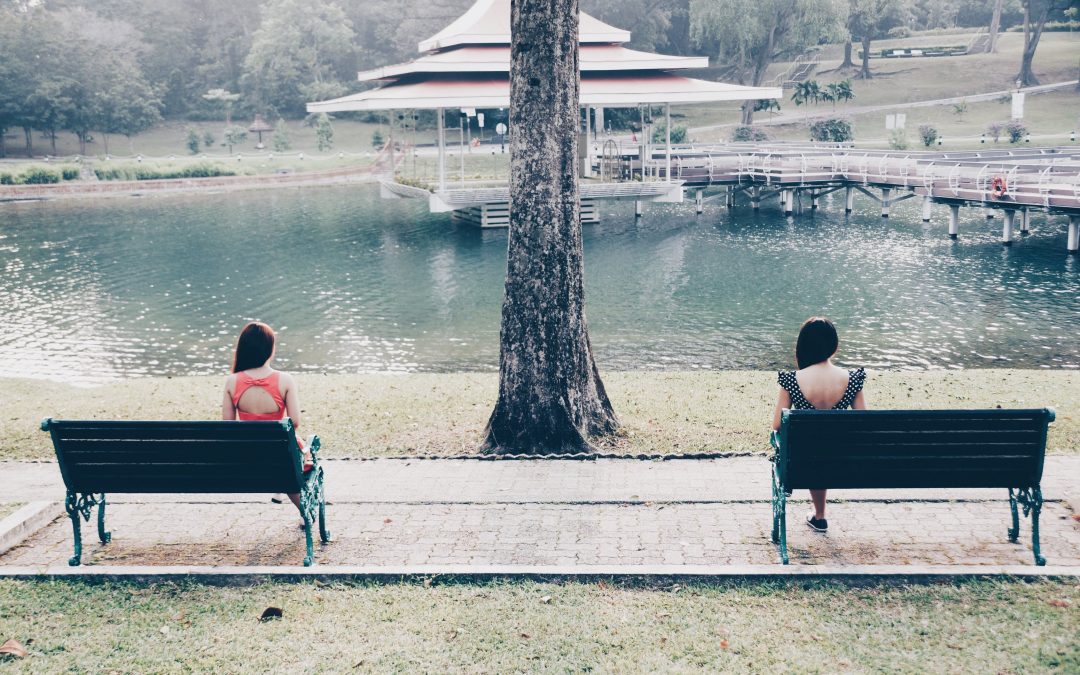
A Thought on the Notion of Empathy
In the world of psychotherapy, nothing seems to feel as natural as the theme of empathy. As a professional, you are supposed to act in an empathic way and be able to engage in understanding the other. Depending on the professional, this could translate into a process of emotional resonance, or rather an exploration towards contextual appreciation.
Of course, the challenge of understanding each other is societal as well, and currently feels as urgent as ever. But whether we are talking about the therapy room or our social commitment, we like to think of empathy as a precondition towards encounters with a more warm and connecting character.
That makes me wonder. If sometimes I experience something very different, then what do I call that?
